Agile4Collaboration 4th Community Online Meeting with Marianne Masson-Delcombel
The Agile4Collaboration project aims to increase the level of expertise of every (aspiring) practitioner using Agile Learning tools and methods. As part of the Peer-to-Peer Online Community, the project has launched the Agile Learning Community in Europe, and we want you to be part of it and help shape it. For our Peer-to-Peer Online Community, we organise regularly community meetups with an exciting lineup of speakers and activities. Our 4th community meetup took place on 17th october 2023.
The first segment of the 4th community meetup started with welcome words from Agnès Lotton from the German K8 Institut and partner for the Agile4Collaboration project. She introduced the project and the community and set the stage for the rest of the event.
The second segment featured Marianne Masson-Delcombel. Marianne is the founder of the School “École Agile 66” in Perpignan (France). She shared her experiences and insights on how to successfully implement Agile Learning in a real-world setting, and adressed more specifically the following issue:
“How agility helps boost confidence and motivation in students at odds with school”.
The third and final segment was a community participation session, where the participants had the opportunity to ask some questions to Marianne Masson-Delcombel, connect with fellow Agile Learning practitioners and share their own experiences.
The community meet up took place in French; Here is a summary in English.
About Marianne Masson-Delcombel:
Marianne is the founder of the School “École Agile 66” in Perpignan (France). She has been working as a manager in a company for 30 years and practiced agile project management methods that place people at the heart of project success. Her passion for the role of neuroscience in supporting educational processes and her experiences as a mother of two children led her to create an innovative democratic school based on Agile principles in 2017. Why? Because she saw how many children were getting out of touch with school: gifted children who get bored and lose interest, children with learning difficulties who are facing some challenges in conventional schools, children who are vulnerable to pression, stress and violence, etc.
About her school:
At the ALC École Agile 66, education and learning are self-directed. Children and teenagers define the nature and form of their learning themselves, and learn at their own pace. They are guided and accompanied by a particularly committed team of facilitators with varied and complementary profiles.
Principle & tools used at the ALC École Agile 66 specifically to support confidence and motivation:
Principles:
- Trust in democracy: Children and adults have the same rights and have a trust-based relationship.
- Self direction: The children chose what they want to learn and how they want to learn it (with a friend, with a facilitator, in the scope of a workshop). The school offers workshops about the whole basic (and mandatory) curriculum.
- Safe space making / Emotional security: This takes a lot of time, but it is valuable time. Build some trust allows to deal with emotions. Non violent communication is one of the tools of the school for stress management.
- Sense: The intentions must make sense for the childen. They must be able to answer the question: “Why do I need this competence for my life?”. Everytime the facilitators show and explain something in a workshop, they explain why it is important to know it or to have this competence as a future adult.
Tools:
- “Set-the-day”: During the Set-the-day, the children write on sticky notes their intentions or the new rules they believe are needed in the school. Facilitators help them with this task if needed, and it is a good opportunity to learn how to speak in front of an audience. This is also the moment where they learn the school’s rules and see that they can make things change.
- Intentions: The facilitators give informations, the children can decide. The children decide how they organize their learning and the facilitators support them doing it. The facilitators are not acting as teachers, but they do so if it is necessary.
- Frequent feedback: Every morning, the children reflect and get feedback on what they did on the previous day.
- Learning review: The children can ask for a learning review. This should happen on their demand, and if not, the facilitators encourage them to do so.
- Multi-age workshops: They offer playing and collaboration. There is no competition between the children during the workshops. They learn together. Learners often help facilitators by the organization of a workshop.
- “Community time”: Twice a week. this is a moment to propose projects and get awareness about things that are not working well. The community time supports argumentation skills. When a child proposes a project, the facilitators question the project on a caring way.
Questions from the participants:
At which moment of the day do the children write their intentions?
Marianne:
They can do it at any time of the day.
How do a school day look like?
A typical day begins at 9:00 AM and finishes at 5:00 PM
Formal learning: 09:30 AM – 11:30 AM (mandatory)
01:30 PM to 3:00PM: Workshops
4:30PM: Community cleanup
The rest of the time, the children can do what they want.
How can I embed agile principle as a teacher in a traditional school?
Many agile principle and tools can be embedded in the traditional school system. It is important to discuss with the learners about the aim of the mandatory curriculum („why is it important for a learner to learn this specific content?“) and to avoid the discourse: “Here is the mandatory curriculum, just learn it!”
You can also have trainee teachers, i.e. learners who support other learners in their learning.
Still, it is true that having the support of the pedagogical team is essential to practice agility in your classroom. Try to introduce the topic to your team, to experiment agility with your colleagues, to inform them about training options.
+++
You can find a previous interview that Marianne Masson-Delcombel released to the Agile4Collaboration team here.



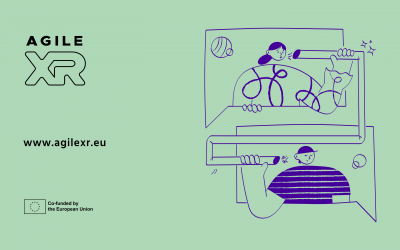
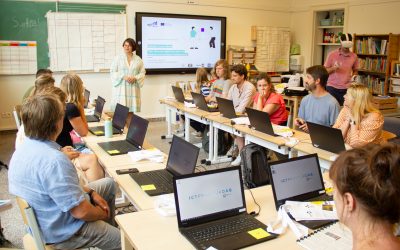
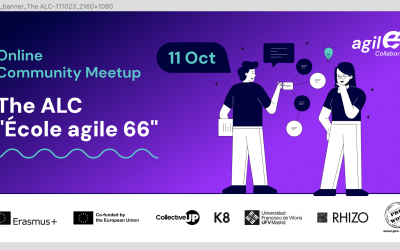



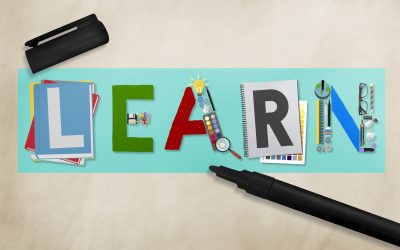
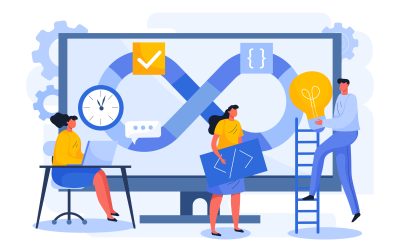
0 Comments